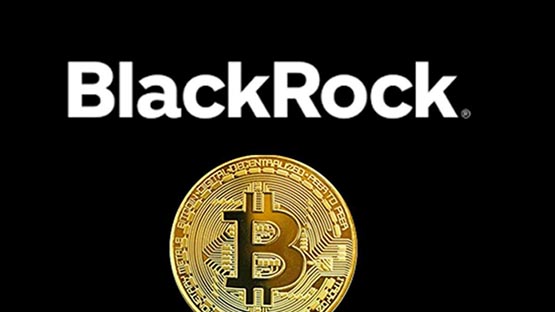php editor Strawberry analyzes Ethereum Gas costs for you. Gas is a unit for measuring transaction costs in the Ethereum network. Different operations consume different amounts of Gas, and the Gas price determines the priority of transactions. Understanding Gas fees is crucial for Ethereum transactions, and Gas prices can be flexibly adjusted according to actual needs to improve transaction success rates. Through this article, you will have an in-depth understanding of Gas fees and help you conduct better Ethereum transactions.

What does Ethereum Gas mean?
Simply put, the gas fee is the handling fee paid to the miner. When you transfer money on the Ethereum blockchain, the miner must package your transaction and put it on the blockchain. , the transaction can be completed. In this process, the computing resources of the blockchain will be consumed, so a fee must be paid.
Gas Fee is obtained by multiplying Gas Limit and Gas Price.
The default value of gas limit is different in different periods and different operations, and you can set the Gas Limit yourself when performing operations. It should be noted that the number of Gas units required to complete a transaction depends on the complexity of the transaction. When a transaction becomes more complex, it must consume more computing resources and therefore more Gas.
Gas Price is the fee in Gwei, which will directly affect the speed at which your transaction is confirmed. A high Gas Price will attract miners to package your transaction faster, while a low Gas Price will require a longer waiting time. If there is no urgent need, you can choose a lower Gas Price to save costs. In every transaction, it is important to adjust the Gas Limit and Gas Price according to the situation.
Can Ethereum Gas be refunded?
Ethereum Gas fees are refundable, and data storage requires gas fees, especially in storage areas, which are more expensive. We need to pay Gas fees to store data into the Ethereum block space. With the rise of DeFi and NFTs, Ethereum’s block space has become increasingly valuable as the demand for block space has exploded recently.
When sending a transaction, we can specify the upper limit of gas consumption to prevent bugs in the smart contract code from causing infinite loop execution.
When Gas is exhausted early during code execution, the virtual machine will throw an exception and abort code execution. In addition, there is another situation where after the code execution is completed, there is still remaining Gas, and the virtual machine will return the remaining Gas to the sender as change according to the agreement.
The above is the detailed content of Understanding Ethereum Gas Fees in One Article. For more information, please follow other related articles on the PHP Chinese website!
 比特币创世钱包成功添加了26.9枚BTC,中本聪是否复苏?Jan 19, 2024 pm 04:27 PM
比特币创世钱包成功添加了26.9枚BTC,中本聪是否复苏?Jan 19, 2024 pm 04:27 PM比特币之父中本聪(SatoshiNakamoto)消失多年后终于出现新线索。根据Blockchain.com链上数据,最新的数据显示,今天凌晨,有一个以bc1q9开头的地址从币安购买了27枚比特币。根据当前的比特币价格(43,506.45美元),这笔交易价值约为117.4万美元。这些比特币随后被发送到中本聪的钱包地址:"1A1zP1eP5QGefi2DMPTfTL5SLmv7DivfNa"。这一发现引起了人们对中本聪真实身份的猜测与关注。该地址是被标记为"Satoshi1",是中本聪在2009年
 USDT属于什么币种深度解析Jan 30, 2024 pm 02:13 PM
USDT属于什么币种深度解析Jan 30, 2024 pm 02:13 PM全称为Tether(泰达币)。是一种基于区块链技术的数字加密货币,也是一种稳定币。其特点是与法定货币美元一比一挂钩,即每枚USDT币的价值与1美元等值。
 贝莱德向SEC确认比特币现货ETF交易代码为IBITJan 19, 2024 pm 03:30 PM
贝莱德向SEC确认比特币现货ETF交易代码为IBITJan 19, 2024 pm 03:30 PM全球最大的资产管理公司BlackRock(贝莱德)最新文件显示,其正式名称代号为「IBIT」。再进一步:确认代号IBIT贝莱德的现货比特币ETF最近公开确认其交易代码为「IBIT」,在本周一提交给SEC的修订版S-1文件中披露了这一重要进展。重点解读:SEC与贝莱德协商模式中BlackRock(贝莱德)在最新文件中增加了关于基金创建和赎回机制的新设计,这一点尤其引人注目。据了解,BlackRock(贝莱德)希望采用「实物创建」(in-kind)的模式,以增加管理投资组合的灵活性。然而,SEC更倾
 Tim Draper再次呼吁:比特币将于2024年价值25万美元!他赞扬比特币的第二层解决方案StacksJan 19, 2024 pm 06:00 PM
Tim Draper再次呼吁:比特币将于2024年价值25万美元!他赞扬比特币的第二层解决方案StacksJan 19, 2024 pm 06:00 PM比特币2024年内站上25万美元根据TimDraper的预测,他在比特币价格为4,000美元时就预测BTC四年内将攀升至25万美元。然而,尽管比特币在2021年牛市创下了历史高点,达到了69,000美元,但距离他的目标价还有很大差距。以当前价格43,500美元计算,比特币需要在一年内上涨近600%才能达到25万美元的目标价。Draper解释说,当他预测比特币价格时,并没有预料到美国会对加密货币如此恐惧,思想如此陈旧。然而,随着比特币逐渐被主流接受,他仍然坚信比特币将在不久的将来达到25万美元。他
 韩国交易所涨价现象:BTC之外的ETH、SOL、XRP、AVAX、ADA等加入泡菜效应Jan 19, 2024 pm 06:42 PM
韩国交易所涨价现象:BTC之外的ETH、SOL、XRP、AVAX、ADA等加入泡菜效应Jan 19, 2024 pm 06:42 PM根据Coinmarket的数据,韩国最大的加密货币交易所Upbit的比特币币价目前为45,614,而全球平均价格为42,783,泡菜溢价约为6%。过去的经验表明,泡菜溢价是牛市即将回归的一个指标之一。不只比特币,XRP、SOL等都出现泡菜溢价据Cryprice数据可以直接比较除了比特币以外,包含ETH、SOL、XRP、AVAX、ADA等的泡菜溢价,大多约在6%左右。比特币和ETH的供应量在24小时内分别增加了4.03%和4.69%。这个增加的供应量反映了韩国投资者对加密货币市场的乐观情绪,并引起
 Mercari:日本最大的二手电商开始接受比特币支付,活跃用户达到2200万Jan 19, 2024 pm 02:30 PM
Mercari:日本最大的二手电商开始接受比特币支付,活跃用户达到2200万Jan 19, 2024 pm 02:30 PM根据日本经济新闻报道,二手交易电商平台Mercari计划从今年6月开始接受比特币支付。为了处理比特币支付,Mercari的子公司Melcoin将负责相关服务,并将所有比特币支付转换为日元。这意味着买家可以选择使用比特币进行支付,但卖家最终会收到法定货币。在Mercari平台上,商品的定价是以日元计算的,而不是以比特币计价。然而,用户在结账时可以选择使用比特币作为付款方式。日本最大二手交易电商平台Mercari成立于2013年,是日本最大的二手交易电商平台。2018年,该公司在东京证交所创业板上市
 索尼、富达、方舟等公司向美国证券交易委员会递交比特币现货ETF的证券注册申请Jan 19, 2024 pm 02:18 PM
索尼、富达、方舟等公司向美国证券交易委员会递交比特币现货ETF的证券注册申请Jan 19, 2024 pm 02:18 PM随着市场预测美国证券交易委员会(SEC)将在1月8号至1月10号期间批准首个比特币现货ETF,现货ETF似乎已接近最后一步。越来越多的迹象和消息显示这一进展,使得投资者对比特币市场的前景更加乐观。根据最新提交给SEC的文件显示,一些著名的比特币现货ETF发行商,如富达、灰度、方舟、Valkyrie和VanEck等,都已经递交了证券注册的「8-A表格」。而Bitwise则是在上周五就率先递交了8-A表格。这些举动表明这些公司正计划发行比特币ETF,以满足市场对于加密货币的投资需求。这也意味着投资者
 前SEC主席Jay Clayton:现货比特币ETF的批准势不可挡Jan 19, 2024 pm 03:45 PM
前SEC主席Jay Clayton:现货比特币ETF的批准势不可挡Jan 19, 2024 pm 03:45 PM比特币现货ETF发行商在1月8日提交修订文件和公布费用结构,同时注入种子基金。SEC主席GaryGensler在此时发推呼吁加密相关风险,被视为发行前的最后提醒。SEC前主席JayClayton接受CNBC专访时也表明,批准ETF是势在必行。JayClayton:批准ETF势在必行JayClayton表示,批准比特币ETF已经是不可避免的事情,而且目前没有任何未解决的疑虑。他强调,SEC对各方提供的信息感到满意。CNBC主持人JoeKernen最近了解到投资比特币ETF所需的成本,这是需要让大家

Hot AI Tools

Undresser.AI Undress
AI-powered app for creating realistic nude photos

AI Clothes Remover
Online AI tool for removing clothes from photos.

Undress AI Tool
Undress images for free

Clothoff.io
AI clothes remover

AI Hentai Generator
Generate AI Hentai for free.

Hot Article

Hot Tools

PhpStorm Mac version
The latest (2018.2.1) professional PHP integrated development tool

DVWA
Damn Vulnerable Web App (DVWA) is a PHP/MySQL web application that is very vulnerable. Its main goals are to be an aid for security professionals to test their skills and tools in a legal environment, to help web developers better understand the process of securing web applications, and to help teachers/students teach/learn in a classroom environment Web application security. The goal of DVWA is to practice some of the most common web vulnerabilities through a simple and straightforward interface, with varying degrees of difficulty. Please note that this software

SecLists
SecLists is the ultimate security tester's companion. It is a collection of various types of lists that are frequently used during security assessments, all in one place. SecLists helps make security testing more efficient and productive by conveniently providing all the lists a security tester might need. List types include usernames, passwords, URLs, fuzzing payloads, sensitive data patterns, web shells, and more. The tester can simply pull this repository onto a new test machine and he will have access to every type of list he needs.

Safe Exam Browser
Safe Exam Browser is a secure browser environment for taking online exams securely. This software turns any computer into a secure workstation. It controls access to any utility and prevents students from using unauthorized resources.

MinGW - Minimalist GNU for Windows
This project is in the process of being migrated to osdn.net/projects/mingw, you can continue to follow us there. MinGW: A native Windows port of the GNU Compiler Collection (GCC), freely distributable import libraries and header files for building native Windows applications; includes extensions to the MSVC runtime to support C99 functionality. All MinGW software can run on 64-bit Windows platforms.







